General description
Set1/Ash2 histone methyltransferase complex subunit ASH2 (UniProt Q9UBL3 & Q91X20; also known as ASH2-like protein) is encoded by the human ASH2L (also known as ASH2L1) and murine Ash2l gene (Gene ID 9070 & 23808). Ash2L is a component of the MLL histone H4 Lys4 (H4K4) methyltransferase complexes composed of Ash2L, RBBP5, WDR5, HDPY-30, one of seven SET/MLL proteins (SETA, SETB, MLL1 to MLL5), and additional MLL complex-specific non-core proteins. For example, the MLL3/4 complex contains the H3K27 demehtylase UTX and the receptor coactivator NCOA6. Ash2L is also present in a complex that contains RbBP5 and Wdr5, but not SET/MLL proteins. Ash2L contains a DNA-binding forkhead-like helix-wing-helix domain (a.a. 67-177 of human and a.a. 63-172 of mouse Ash2L) in its N-terminal region and a B30.2/SPRY (a.a. 360-583 of human and a.a. 355-578 of mouse Ash2L) domain in its C-terminal region involved in protein-protein interactions. Ash2L is reported to interact with AP2G, GATA3, MEF2, and TBX1, and is involved in their transcriptional activation. In addition, p53 induction is shown to cause increased H3K4me3 epigenetic modification at its pro-apoptotic target promoters, resulting in enhanced Wdr5, RbBP5 and Ash2L occupancy at these pro-apoptotic gene promoters. Ash2L overexpression is reported to enhance p53 pro-apoptotic gene expression and p53-dependent apoptosis of cancer cells in response to chemotherapy, while Ash2L silencing abrogates p53-dependent target gene expression.
Specificity
Specificity was confirmed by decreased target band detection in lysates from Ash2L shRNA-treated C2C12 cells (Rampalli, S., et al. (2007). Nat. Struct. Mol. Biol. 14(12):1150-1156).
Immunogen
Recombinant full-length human AshL.
Application
Anti-Ash2L, Cat. No. ABE1972, is a highly specific rabbit polyclonal antibody that targets Set1/Ash2 histone methyltransferase complex subunit Ash2L and has been tested in Chromatin Immunoprecipitation (ChIP), Immunoprecipitation, and Western Blotting.
Chromatin Immunoprecipitation (ChIP) Analysis: A representative lot detected Ash2L recruitment to the Ckm and Myog promoter sites in differentiating C2C12 murine myoblasts. MAP kinase p38 inhibition or shRNA-mediated dual Mef2c/Mef2d knockdown reduced Ash2L enrichment at the target promoter sites (Rampalli, S., et al. (2007). Nat. Struct. Mol. Biol. 14(12):1150-1156).
Immunoprecipitation Analysis: A representative lot co-immunoprecipitated Mef2 with Ash2L from nuclear extract of differentiating C2C12 murine myoblasts (Rampalli, S., et al. (2007). Nat. Struct. Mol. Biol. 14(12):1150-1156).
Western Blotting Analysis: A representative lot detected full-length as well as N-terminal (a.a. 96 281) and C-terminal (a.a. 317-628) recombinant human Ash2L constructs. Full-length and the C-terminal fragment, but not the N-terminal fragment, were detected in the pull-down by GST-tagged RbBP5 (Avdic, V., et al. (2011). Structure. 19(1):101-108).
Western Blotting Analysis: A representative lot detected Ash2L in Mef2, MLL1, MLL2, MLL3, MLL4, and SET1 immunoprecipitates from differentiating C2C12 murine myoblasts. Ash2L in Mef2 IP was greatly reduced when using lysates from MAP kinase p38 inhibitor-treated cells (Rampalli, S., et al. (2007). Nat. Struct. Mol. Biol. 14(12):1150-1156).
Western Blotting Analysis: A representative lot detected an increased Ash2L pull-down from nuclear extract of differentiating C2C12 murine myoblasts by FLAG-tagged Mef2c and Mef2d following their phosphorylation by p38alpha, while no Ash2L pull-down was seen by Mef2d p38 phosphorylation sites mutatant (Rampalli, S., et al. (2007). Nat. Struct. Mol. Biol. 14(12):1150-1156).
Western Blotting Analysis: A representative lot detected Ash2L in whole cell lysate and nuclear extract, but not cytosolic extract from differentiating C2C12 murine myoblasts, Ash2L shRNA treatment dercreased target band intensity (Rampalli, S., et al. (2007). Nat. Struct. Mol. Biol. 14(12):1150-1156).
Research Category
Epigenetics & Nuclear Function
Quality
Evaluated by Western Blotting in C2C12 myoblast lysate.
Western Blotting Analysis: A 1:1,000 dilution of this antiserum detected Ash2L in 10 µg of C2C12 murine myoblast lysate.
Target description
~77 kDa observed. 68.72/56.48/60.21 kDa (human isoform 1/2/3), 68.25 kDa (mouse) calculated. Uncharacterized bands may be observed in some lysate(s).
Physical form
Rabbit polyclonal antibody serum with 0.05% sodium azide.
Unpurified.
Storage and Stability
Stable for 1 year at -20°C from date of receipt.
Handling Recommendations: Upon receipt and prior to removing the cap, centrifuge the vial and gently mix the solution. Aliquot into microcentrifuge tubes and store at -20°C. Avoid repeated freeze/thaw cycles, which may damage IgG and affect product performance.
Other Notes
Concentration: Please refer to lot specific datasheet.
Disclaimer
Unless otherwise stated in our catalog or other company documentation accompanying the product(s), our products are intended for research use only and are not to be used for any other purpose, which includes but is not limited to, unauthorized commercial uses, in vitro diagnostic uses, ex vivo or in vivo therapeutic uses or any type of consumption or application to humans or animals.
biological source: rabbit. Quality Level: 100. antibody form: serum. antibody product type: primary antibodies. clone: polyclonal. species reactivity: mouse, human. technique(s): ChIP: suitable, immunoprecipitation (IP): suitable, western blot: suitable. NCBI accession no.: NP_004665. UniProt accession no.: Q9UBL3. shipped in: ambient. target post-translational modification: unmodified. Gene Information: human ... ASH2L(9070). Storage Class Code: 12 - Non Combustible Liquids. WGK: WGK 1. Flash Point(F): Not applicable. Flash Point(C): Not applicable.- UPC:
- 51102859
- Condition:
- New
- Availability:
- 3-5 Days
- Weight:
- 1.00 Ounces
- HazmatClass:
- No
- MPN:
- ABE1972












